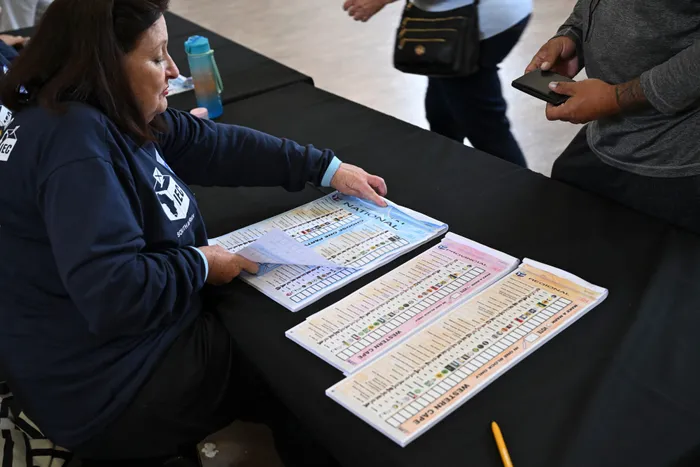Over 48 million ballot papers made available nationally during the seventh democratic elections

Millions of ballot papers were distributed nationally, file image.
Cape Town - The Electoral Commission of South Africa (IEC) has released their administrative numbers, revealing that over 48 million ballot papers were made available nationally during the seventh democratic elections.
A total of 26 million people registered nationally and only 16 million went to the polls.
A total of 17 083 people were recruited in the Western Cape to be at voting stations and to be part of the counting process which followed.
They also named their so-called hot spot areas such as Gugulethu which was closely watched by police and local law enforcement.
Last week, the National Treasury revealed that in the 2023/24 financial year the Electoral Commission of SA was allocated R2.232 billion.
The commission is also allocated R2.302bn for the 2024/25 financial year, of which R322.2 million was transferred during April this year.
A further R1.040 billion is being transferred between May and June 2024 to the Electoral Commission.
The IEC further revealed that ballots across the country included national ballots of 16 290 156, regional ballots 16 015 252 and provincial 16 029 001, totalling just more than 48 million.

“Based on the voter participation for the Western Cape, the national ballot was 2 009 304, regional ballot 1 976 727 and provincial 1 983 137.
“There were 1 572 voting stations active in the Western Cape of which 29 were temporary structures and nationally 23 292 across the country,” the IEC said.
The electorate also raised the issue of missing ballots after a box disappeared during transportation in KwaZulu-Natal.
Areas such as Manenberg, Khayelitsha, Nyanga, Philippi, Tafelsig, Browns Farm and Gugulethu were identified where more police and law enforcement were stationed.
During the police crime statistics earlier this year, Nyanga, Gugulethu and Khayelitsha were of the top five stations where the murder rate was high.
Earlier this week, the SA Human Rights Commission (SAHRC) endorsed last month’s national and provincial elections as free and fair.
“The SA Human Rights Commission endorses the 2024 national general elections as free and fair,” the commission said last Sunday.
The SAHRC observed 161 voting stations and gathered 98 reflections from human rights officials and champions, resulting in a significant national footprint across 259 voting stations.
Related Topics: